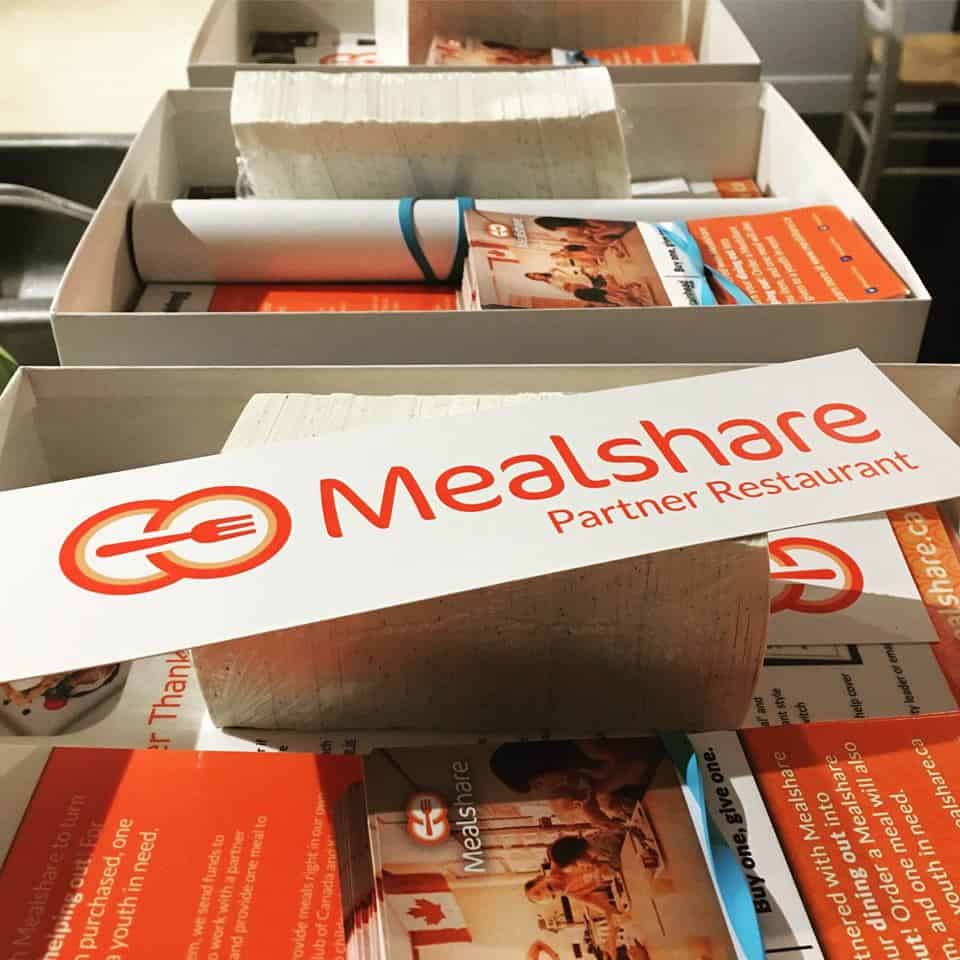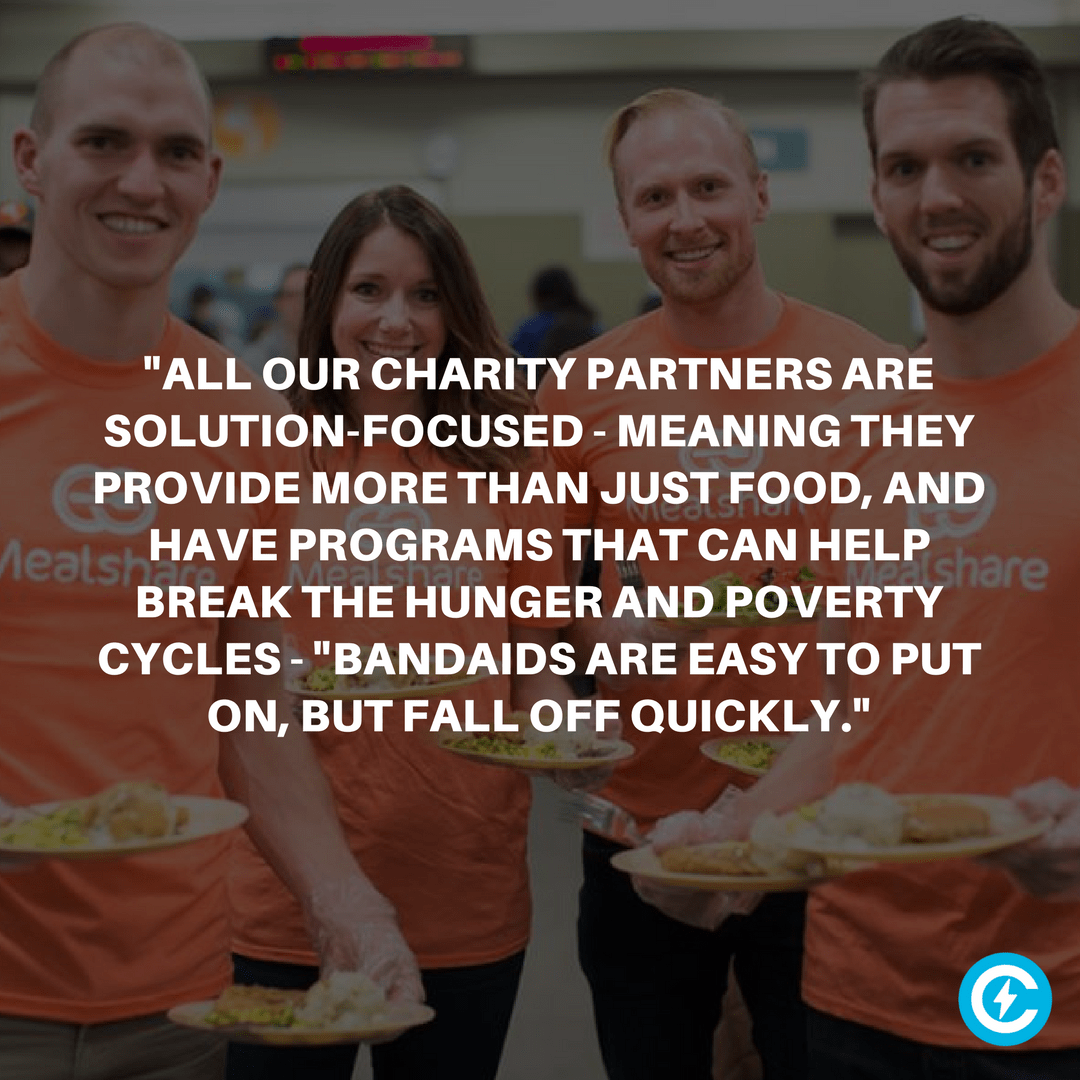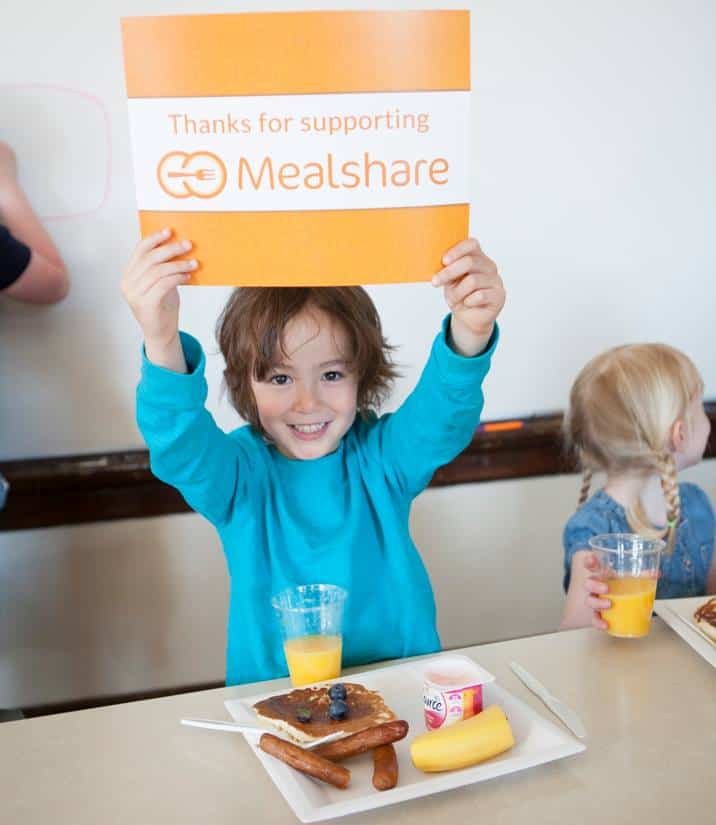Mealshare is committed to ending youth hunger “within our lifetime.” Their methods enable and equip people everywhere to join their mission without asking charitable participants to make changes in their own lives. Mealshare operations imitate those of TOMS “one for one” model. They are empowered to donate a meal to a child in need every time customers at participating locations purchase select items tagged with the Mealshare logo. To date, they have provided nearly 1.3 million meals to those in need. With help from partner charities, half of the donated meals are sent directly to local community organizations, the other half are donated globally by Save The Children.
Below is a Q&A with the founders of Mealshare, Jeremy Bryant and Andrew Hall. 🙂
Mealshare has delivered over 1 million meals to date. How that feels to have created such a great impact. Did the team ever think this would be something Mealshare achieved?
Yes, and no! We’re definitely dreamers, and we’ve always set our sights high. From day one of Mealshare, we dreamt of a world without youth hunger. Our dream is to able to sit in a rocking chair one day and explain to our grandkids there used to be hungry children in our world.
At the same time, it always surprises us what a big impact we can make together. And that’s the beauty of Mealshare – we don’t share a million meals by ourselves or with only a small group of people taking big actions. Rather, it’s hundreds of restaurants and tens of thousands of customers who each made reletively small actions. And when you add up all those actions, you get a huge result! It’s been a fun adventure to get to see it all come together!
Since the impact has already affected so many at this point what is the goal now for Mealshare? Has the ideology changed at all with expansion to other cities?
Our goal hasn’t changed; we’re still looking forward to the day when we can tell our grandkids that youth hunger USED to be a big problem. So with that being said, the ideology hasn’t changed much – we’re still committed to working with amazing charity partners in each city we operate in. And we still hustle to connect with the best restaurants in every city we operate in and try to get them signed up!
Moving forward, we have goals to expand into dozens more cities and recreate the magic anywhere there are hungry kids. We’ve accomplished a lot, but we feel like in another way it’s just the beginning!

Mealshare has now expanded to the U.S. and entered Austin, TX. Is Austin the only U.S. city that Mealshare is currently in? How has the transition into the U.S. been?
That’s right – we expanded to Austin in December 2016. Austin was our first U.S. city that we’re in (although we’re hoping to change that soon!).
The transition to the U.S. has been great. It obviously comes with a decent amount of paperwork and logistical struggles. But, it also gave us Canadian boys an excuse to escape the Canadian winter and visit Austin in December — so overall it’s been a big win 🙂
Are there more differences or similarities dealing with hunger in the U.S. compared to the issue in Canada?
We’ve found more similarities for sure! Mealshare requires a couple factors to be in place for it to be successful in a new city; 1) Great restaurants and a thriving food culture. 2) Passionate citizens who care about helping the community. 3) youth who are struggling or facing difficulty. Those are three fairly broad requirements, and it opens us up to operate in many cities! The differences have been pretty subtle – and mostly in the legal and technical things – the boring stuff!
We think this comes down to the fact that generally, people are pretty similar – they have good hearts, and want to help. Everyone seems to love the concept no matter where we go.

How can other U.S. cities get involved with Mealshare?
The best way would be for individuals to reach out to us and let us know they want to get involved. That could be a restaurant, a charity, or just a passionate member of the community. We’re currently trying to narrow down what will be the next U.S. city we bring Mealshare to – so knowing where there might be some grassroots support would make that a much easier decision to make!
On a bigger scale, there’s a minimum amount of funding we need in each new city we move to in order to get started up. If we found that there were municipalities with a budget, big grants available from foundations, or generous private donors who wanted to get us started in their communities, that would lower a huge barrier we have to expansion and we could get to work faster!
Has Mealshare looked into partnering with Postmates or other food delivery services to implement the same sort of Mealshare structure?
A little bit! We don’t currently work on a large scope with any food delivery services. With that being said, we’ve done some campaigns with a few food delivery services and would love to get more involved! If anyone knows any great food delivery services who want to make a meaningful impact to help end youth hunger, send them our way. There are definitely synergies and we think we could work well together!

What is the most difficult challenge facing hunger today? How can local governments and citizens do more to contribute to solving this issue?
That’s a tough question! It’s important not to give simple answers (donate here, volunteer there) that might just address the symptoms and not the cause of hunger. The issue is that hunger isn’t a stand alone issue; hunger and poverty are dark passengers to one another – to address hunger, we need to address poverty. And vise versa. Beyond that, the solution is not the same for all parts of the country (or continent, or world!)
So the question we should be exploring is how can local governments and citizens do more to contribute to solving poverty and hunger in THEIR communities?
As a general rule, we’d encourage people to spend time in discussion with people in need in their community to identify the needs of those individuals. We aren’t going to pretend to be experts in the hunger scene in Austin. There are amazing people who spend their lives working at reducing hunger, and the problem still exists.
One thing we do like to talk about is that at Mealshare, all our charity partners are solution-focused – meaning they provide more than just food, and have programs that can help break the hunger and poverty cycles – “Bandaids are easy to put on, but fall off quickly.”




